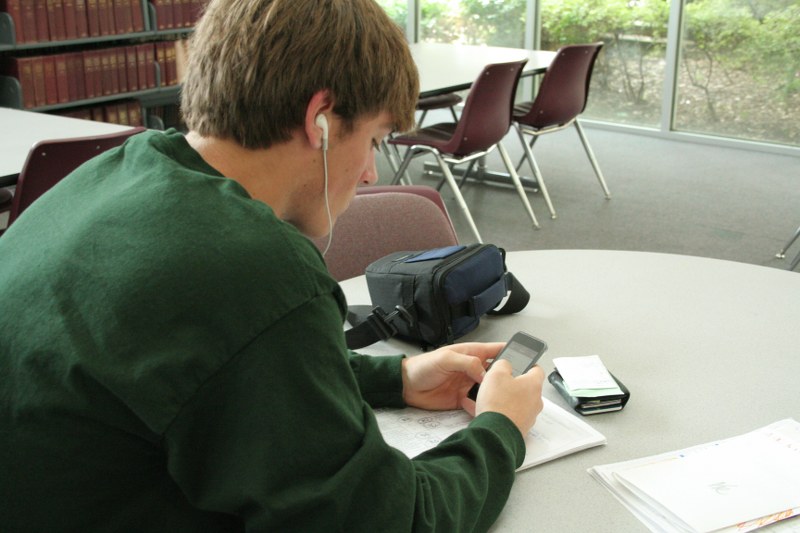Quit delaying!
 By Nelly Nepalit,
HUB Correspondent–
By Nelly Nepalit,
HUB Correspondent–
Junior Tyler Jones is up at midnight on a Sunday in May. He has an essay due Monday for his English class. He tried to start early, but somehow he ended up doing his homework at the last minute.
According to Jones, this is an everyday event.
“I had three F’s; I think that’s kind of self explanatory,” Jones said. “I get distracted easily.”
But there is hope for students like Jones. Academic procrastinating can be solved, according to DePaul University psychology professor Joseph R. Ferrari. A student only needs more motivation, more critical thinking and less distraction.
Ferrari claims habitual procrastinators fall into two categories: “arousal” and “avoidant” procrastinators.
Those who enjoy leaving assignments until the last minute and rush to finish it are “arousal” procrastinators, and those who make excuses to avoid assignments are “avoidant” procrastinators.
“I work better under pressure, because then I feel like I have to get it done and that it must be good,” junior Alex Lutkenhouse said. “I suggest leaving assignments until like, three days before it’s due.”
Students who say they work better under pressure need to motivate themselves earlier so that they can avoid delaying their work, Ferrari said. If they don’t, they continue a chain of avoidant procrastinating habits.
Junior Michelle Chin claims her competitive family helps prevent procrastination.
“Not doing homework is not an option for me,” Chin said. “I used to be a huge procrastinator … [but] I feel like a failure if I don’t keep up.”
Chin advises students to study in an area where there are no distractions, like a library, and gather in study groups to get work done.
“Try to feel good about turning something in so you don’t procrastinate as much,” Chin said. “That’s how I […] stopped procrastinating.”
Vice principal and librarian Stacy Desideri believes the main reason students struggle so much is because they stop asking for help in high school.
“Students need to take advantage of programs that exist to combat procrastination,” Desideri said. She suggests students go to the academic center or utilize tutoring programs like the Math and Science Tutors Club.
Desideri stresses that students should continue to ask for help as openly as they did in junior high.
Combating procrastination is an ongoing task. Even universities coach better work ethic and avoiding procrastination.
Kelly Ahuna, a professor at University of Buffalo, teaches students various methods of learning so that students can learn “how to learn” and improve critical thinking.
Still, 75 percent of students become academic procrastinators, according to Ferrari’s study. He teaches his students to break down assignments into manageable parts so that they can be motivated to start large projects earlier.
“Don’t look at the big picture first and think ‘I’ll do it later.’ Break it up into small sections,” Ferrari said.
Jones claims he has tried a few methods. “I just try to put away my music for a while and tell myself to just do it and get it over with.”
It is possible for students to get out of the habit of procrastination, according to Ferrari.
“Everyone procrastinates, but not everyone is a procrastinator,” Ferrari said.



